Filmmaker Cooper Raiff On ‘Cha Cha Real Smooth’, His David Harbour Pic ‘The Trashers’ & The “Really Small” TV Show He’s Making Afterwards – Q&A
- Oops!Something went wrong.Please try again later.
- Oops!Something went wrong.Please try again later.
- Oops!Something went wrong.Please try again later.

From the perspective of filmmaker Cooper Raiff, Cha Cha Real Smooth embodies a specific kind of “feel-good” spirit of which he’s always in pursuit.
The Sundance Audience Award winner is the up-and-coming multi-hyphenate’s second feature, on the heels of his 2020 crowd-pleaser Shithouse, which proved a success in spite of a release hobbled by the Covid pandemic—being picked up for release by IFC Films after winning SXSW’s Grand Jury Prize. The coming-of-age drama centers on Andrew (Raiff), a who strikes up a friendship with young mother Domino (Dakota Johnson) and her autistic daughter Lola (Vanessa Burghardt) while working as a Bar Mitzvah party starter. Like Raiff’s first feature, Cha Cha is a charmingly intimate and sincere, relationship-driven indie of great quality—the kind that was able to achieve significant success and seemed more commonplace as recently as a decade ago, but is now much harder to find.
More from Deadline
'The Afterparty': Will Greenberg & John Gemberling Join Season 2 Of Apple Comedy Series
How 'Slow Horses' Cinematographer Danny Cohen Filmed An "Anti-Spy Thriller"
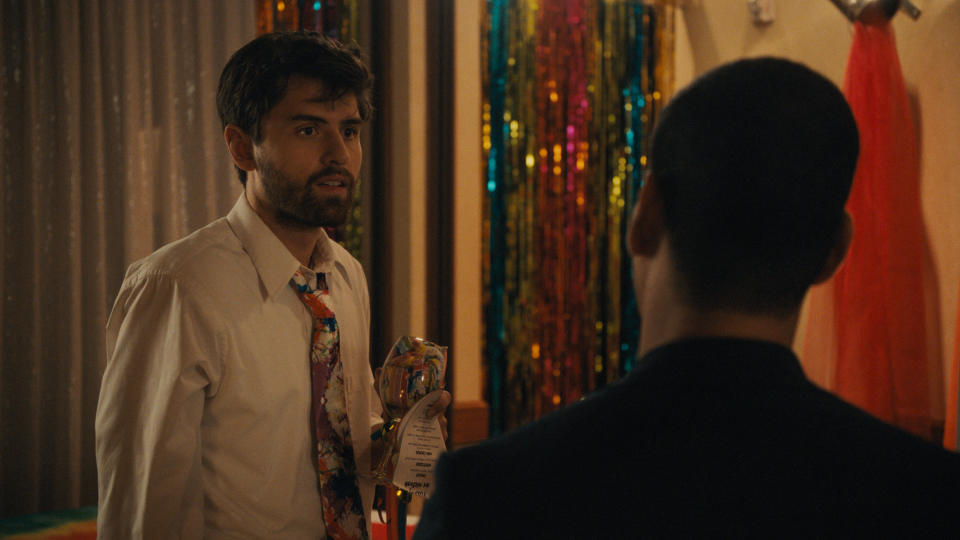
Apple TV+
As a filmmaker boasting equal skill as a performer, Raiff is reminiscent of the Duplass brothers, who began carving out their own space within the indie sphere back in the 2000s. (Raiff has named the prolific filmmakers as key influences, and has found a mentor in Jay Duplass specifically.) A key takeaway from the duo for the Cha Cha helmer has been the value to be found within small projects like it—given the conviction that they can be as commercially successful as they are creatively rewarding.
Up next for Raiff is the David Harbour starrer The Trashers—a drama financed by 30West, which is based on the true story of of Jimmy Galante, a Connecticut trash magnate who bought a local minor-league hockey team in 2004 and assigned his teenage son to run it. The team gained notoriety for their rough and violent style of play but also developed a wide fan base as they started to win more and more games, seeing their success and fame come to an abrupt end with Galante’s arrest on 72 criminal charges.
In conversation with Deadline ahead of the June 17th release of Cha Cha Real Smooth, Raiff teased that film heading into production this fall, as well as the “really small TV show” he’ll make by himself thereafter. He also delves into the making of Cha Cha and offers an update as to the status of his upcoming Amazon series Exciting Times, based on Naoise Dolan’s novel.
DEADLINE: What inspired Cha Cha Real Smooth?
COOPER RAIFF: The genesis of Cha Cha was, my sophomore year of college, I was writing a lot. Honestly, I was talking to my mom…My sister Andrea is disabled, and she was talking about how her life will forever be defined by Andrea’s stages, and I didn’t know what to do with that information, other than write it down.
So, I started writing this character that was this mom of a disabled kid, and that character turned into Domino. At the time, I’d made my first movie, Shithouse…I had meetings and they would ask what movie I want to make next, and in some of the meetings, I would talk about this character and people would say, “That’s a character, not a movie. Do you have any movie ideas?” Then, after time, I started to think of a bigger idea for that movie—the idea to tell it through the lens of the person I know best, which is just like a 22-year-old dumbass.
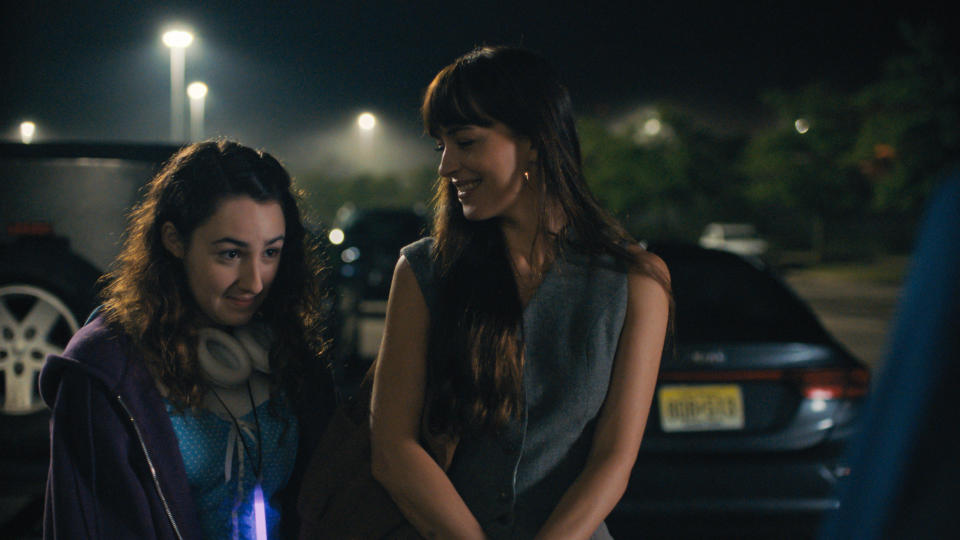
Apple TV+
So, I had those two characters, and then I needed a way for them to keep coming into contact with each other—and then when I had the bar mitzvah circuit idea, that’s when the pitch came together.
DEADLINE: Were there other big breakthrough moments in cracking the story?
RAIFF: Yeah. I had thought of the bar mitzvah circuit idea so I was like, “He’s going to have a little brother. That’s how he’s going to end up at this bar mitzvah.” But then I thought back to my seventh grade year and all of the bar mitzvahs I went to and was like, “He should be a party starter.” And then, the eureka moment for the movie was, “Oh, it’s a guy who’s really good at starting other people’s parties, and he has no idea where to begin, when it comes to starting his own.” That was the big moment where the script became clear to me, and it felt lucky that I had a fun hook that really worked for this character and theme of doing your twenties, and him meeting this character that didn’t get to do her twenties.
DEADLINE: You’ve shown a knack for casting with both of your films and share great chemistry with your Cha Cha co-star Dakota Johnson. How did you get her on board, as both an actor and producer?
RAIFF: I met with her producing partner and we hit it off, and I kind of just pitched this idea of the character and said, “I think Dakota would be great.” Honestly, she was quite young for what I had pictured, but I think when it comes to casting, it’s not like I’m writing this amazing role on the page, and it’s for this person. I think what happens is, when it becomes clear that I think we can convince this person to be in the movie, then all of a sudden that’s what pops the script wide open.
I spend a lot of time, when I know that the actor’s going to be in it, trying to figure out the most dangerous, funniest, realest, most authentic way for this actor to marry this character. That, I think is…Sure, it’s casting, but I think more it’s realizing that movies are such a collaborative thing, and it’s not just nailing what you had in your head. It’s trying to say what you want to say in your head, but how you say it is getting there through numerous different ways, and one of the ways is trying to get the best performance, and the best actors to be in a movie.
DEADLINE: Tell us about casting and working with Evan Assante and Vanessa Burghardt. They brought a lot to their respective roles as Andrew’s brother David and Domino’s daughter Lola…
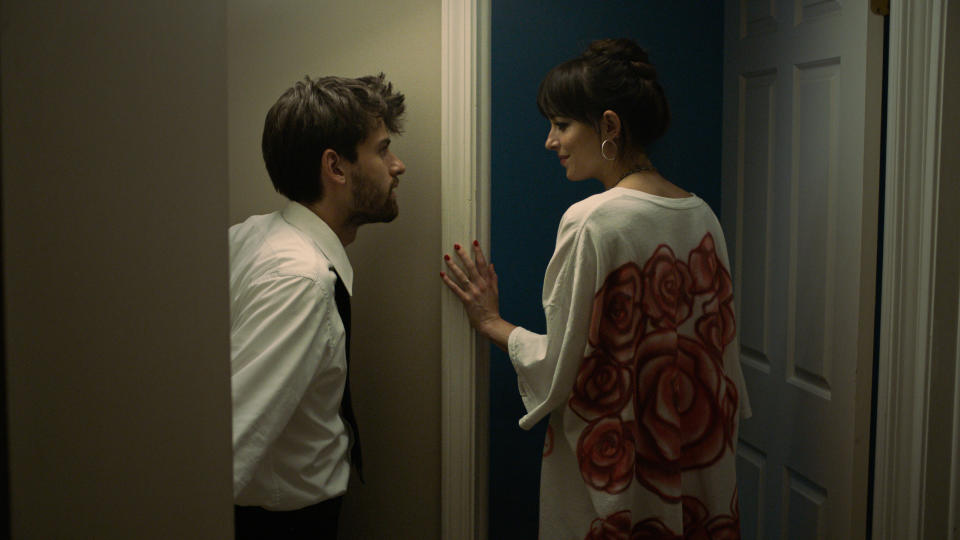
Apple TV+
RAIFF: For the kids—Evan, Colton [Osorio] and Vanessa—we did a nationwide search. When I saw all three of their tapes, it was just me falling in love with them. Evan, honestly, what drew me to him so much was, he really was so perfect for what I had written, and I just knew that it was going to be so fun starting a relationship with him. He’s so sweet and young and charming, in the way he doesn’t even know he’s charming. He also is the kind of kid you don’t take seriously as a person because he’s so young—until you realize, “Oh my god, you are just as sensitive as I am, as a 22-year-old.” I think that’s the dynamic there, so I was really excited about him because it was like, “Oh, this is perfect, and I kind of don’t have to do much. I just have to get to know him and it’ll come through exactly the way I wanted.”
With Colton, it was like, “This guy’s the funniest kid ever” and trying to write that for him when I met him. Then, with Vanessa, I saw her tape and just really wept, and I didn’t know why. She was not at all what was written on the page, but after I watched [her audition], I called Ro [Donnelly], the producer, and said, “I need you to talk to every other producer, all the financiers and tell them it’s going to be Vanessa. I know it’s not what’s written on the page, but I’m going to figure it out. Trust me. I don’t want to have any arguments about this.” So, the rest of the process was just me trying to keep up with Vanessa and letting her inspire the role in a massive way.
I never wanted to put the onus on her because I am the writer and she’s an actor, but she’s a very opinionated person and loved getting on Zoom to talk about the character, and she really informed the role. She was reading the sides in the way that they were written, but there was just something that was coming through in the tape. She was reading with her mom, and I just felt so hardcore that she was who the movie needed. She was the heart of the movie that I wanted to make, and so I was like, “There’s the heart. Let’s try our best to make it awesome.”
DEADLINE: What was your experience been like, in working to get Shithouse and Cha Cha off the ground? I imagine you’ve faced some new challenges—in comparison, for example, to the Duplass brothers, and those they faced as they made their entrance into the indie world.
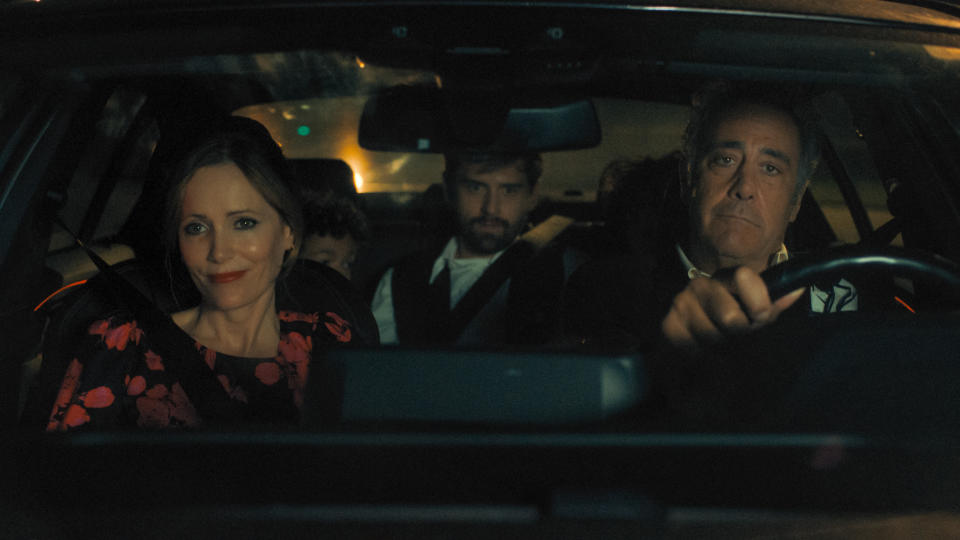
Apple TV+
RAIFF: I think it’s really challenging. I mean, it’s challenging to make any size movie. I think the Duplass method or modus operandi is like, “It’s going to be hell no matter what. Making movies is [like] fighting a monster. So, you might as well have as much fun and as much control as possible doing it.” But I don’t know. The question I ask myself every day is, how small do I want to keep this? And how best can I not kill myself making it? How can I protect my health and my non-gray hair? I think the way to do that, I don’t know yet. But to me, the movies that I want to make and a show that I want to make, it’s really a specific feel-good. I think it’s movies that other people really, really are dying to see, and some are really small concepts that are really specific. I’ve tried to be smart about knowing how small Cha Cha is and how small my next movie is, but also be smart about trying to convince these people who are the money people that people are dying for this thing.
I do have to think about the business because otherwise, I don’t get to do the art. So, I think about it a lot, and this next movie that I’m doing, [I’d like to] go around and convince people that this is a movie for every, every, everybody. It’s really execution-based because it’s not a no-brainer for someone who’s just looking at numbers, and looking at how well sports movies work. Because they’re thinking about foreign sales and so many things that you can’t even begin to wrap your head around. So, really, all you can do is not be dumb about the business—but also, show what magic you’re going to bring, and how you’re going to get people to feel. And out of all the things they could be doing, why are they watching your movie? I think that’s the most important thing.
But all that’s to say, after I make this next movie, I know for a fact the next thing I’m going to do is make a really, really, really small TV show by myself, because I’m fortunate enough to have enough money to do that. My goal is to totally just bet on myself and flip it in the way that I did with Shithouse, and the way I did with Cha Cha. Cha Cha was a tiny bit bigger, but that is what I love most, and I think that really is the Duplass way. I think the Duplass brothers were able to do that because they went through all that…Those guys made the Searchlight movies. They made Cyrus, they made Jeff Who Lives at Home, and then they felt like they had a place where they could go do what they wanted. So, I think that’s honestly exactly what I’m going to try to do.
DEADLINE: How do you feel about the future of cinema as a medium, and of the theatrical experience, given the challenges they’ve faced in recent years?
RAIFF: I feel really confident about small things. I’m going to start a company and probably call it Small Ideas…There’s a very good, lucrative market for making small things and flipping them, and if you’re okay with them being maybe like a streamer-theatrical duo, I think everyone should be really feeling great and confident about getting their stuff made that they want to make.
I think honestly, what worries me is the bigger movies that I love to go see, which I really want Trashers to be…This next movie that I’m doing, it’s a hockey movie, and it feels like exactly what everyone wants. Maybe not everyone in Los Feliz, but it feels like what the country wants. So, I’m kind of racking my brain. Like, how is this not the easiest sell in the world to anyone?
DEADLINE: You mentioned your goal of crafting feel-good stories of a specific sort…In 2022, it feels like this kind of filmmaking is almost a radical act. It’s really refreshing to see an uplifting indie like Cha Cha come along, given that they’re maybe not as prevalent as they once were.
RAIFF: Yeah, I don’t know why it’s a rarity. It’s funny. I think indie movies love to have unlikeable characters because they’re like, “We’re not a big studio movie, and studio movies have to have the theme of family and ultimately have a happy ending. So, because we’re an indie, we’re going to make it not that.” But one out of every 50 big studio movies, I’m like, “This is my favorite movie in the world.” So, it’s just trying to figure out how to do that in a more intimate setting, or with just a lot less money. And it’s easier.
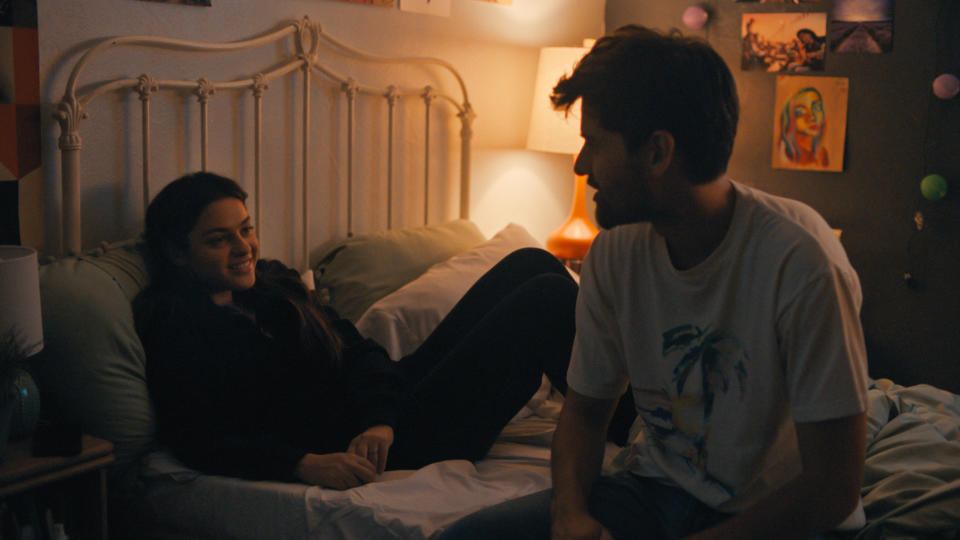
Apple TV+
I like making those movies way better than I would like making the really, really expensive studio movie because you’re trying to make so much money if you’re making those things, because the budget is so big. I don’t know how to make that much money, but I do know how to make a certain amount of money, and I know how to make something small. So, I want to be in that business. That’s why I want to start a production company, because I don’t know why a small TV show hasn’t been made and flipped for like six times what it was made for. I don’t know why that hasn’t happened yet.
DEADLINE: While you’ve released two hit films in the last three years, you only got to experience a festival screening of your work for the first time recently, when you brought Cha Cha to SXSW. How did it feel to be able to join your collaborators in watching the film play before an audience?
RAIFF: It felt like a great, full circle. It was very cathartic, and hugging Janet Pierson, the Director of South by who programmed Shithouse two years ago, was like the best feeling in the world. And seeing the movie with an audience, and seeing it with the cast. Dakota was sitting right behind me and sometime during the movie whispered in my ear, “I think this is the best movie ever.” Obviously, she doesn’t think it’s the best movie ever, but we just were so excited to be in a theater, experiencing this movie that had our DNA all over it. The energy was great and it was just one of those moments where you’re like, “Oh, this is what we do it for.” Because I think up until that point, I had really been [feeling], “I’m so lucky, I’m so grateful. I’m going to put my head down and just keep saying yes to these opportunities. How great, that I get to make art.” And it’s…so much fun to make movies, but I was always missing that fourth movie. Like, I always tell myself there’s four movies in one. It’s what’s written, what you shoot, what you edit, and then what the audience sees. I never really experienced that [fourth movie] except for in my pajamas, looking at Twitter. So, it was nice to be in person. I think the best part of seeing a movie in a theater that you’ve made is when it’s really, really silent for like 10 minutes and you know a funny moment is coming, and it’s the moment to really see how engaged people have been. Then, if that laugh is a big laugh, it’s like, “Oh my god, they’re in it.”
DEADLINE: As you mentioned, your next movie is The Trashers with David Harbour. This one seems to be in the same vein, as far as its heart and its focus on relationships. I imagine, though, that it will be your biggest-budget film yet, and give you new tonal elements to play with. What can you tell us about it?
RAIFF: It’s the first movie that I just get to focus on directing, and it’s the first movie where I feel confident as a director. I think with both of my first movies, I was looking at it as, “Oh, I’m doing all the things, and it feels homemade, and it doesn’t even feel like I’m a director. It just feels like I’m making it with everyone, and everyone is co-director.” With Trashers, I really feel like it’s a movie movie. What’s on the page is so exciting, and so deeply emotional because it’s just a lot more opportunity to tee things up and to keep people really on their toes and gritting their teeth. People who know me are like, “Oh my god, this is what you’ve been waiting to make.”
I think people who maybe watched Shithouse and Cha Cha are like, “A violent hockey movie? Why are you making that?” But it’s this very specific, good feeling that I’m always after. This movie is an angry movie, but it’s coming from a really, really authentic, organic, smart place. It’s about this 18-year-old who’s handed all of these things and just goes balls to the wall with it, and that’s how I feel as a filmmaker. “It feels like all these things kind of fell in my lap. What do I do with it?”
He’s just trying his best and there’s moments where he really feels like he was born to do this, and moments where he feels so entirely out of his element that it’s devastating and it rocks him. Then, there’s this father-son element that I very much relate to, and my kind of way in was the big feelings of your last high school game, and how devastating that is. There’s that element in the movie, and it’s kind of the most relatable thing in the world to me. It’s kind of hard pitching it to all these Silver Lake, Los Feliz people because I don’t think that they’re all theater kids, but it’s a movie that I think a lot of people will hook [into], in Ohio and Houston and Dallas. They are going to really want to see this movie and love this movie.
DEADLINE: The ultra-low budget TV series you mentioned—is that your adaptation of Naoise Dolan’s Exciting Times?
RAIFF: No, Exciting Times is at Amazon, so it’s the opposite. I’m working with the author, and she’s the smartest person I’ve ever met, so it’s just been so fun working with her, but also just becoming friends with her. We’ve written the first two episodes, and we’re on track for getting it made, but I just don’t know the timeline. I don’t know when we’ll get the greenlight or whatever.
DEADLINE: Who or what has been inspiring you creatively, of late, as you gear up for your next projects?
RAIFF: In the present moment, I’d say I love Ryan Coogler, and I love Greta Gerwig, and I love Emma Seligman, who had a movie called Shiva Baby at South by. I think there’s a lot of people who are making a lot of meaningful movies, and I’ve been talking a lot about Greta and Ryan recently, because I just think what they’ve done is not just authentic, but amazing. Their heart is always in the right place, but they’re also just so immensely talented, and they’ve figured out a way [where it’s] not just people in Los Feliz. Everyone is going to go run to see everything Ryan Coogler makes. Everyone’s going to run to go see everything Greta Gerwig makes, and that kind of person makes me so excited about art and the state of movies.
Best of Deadline
2022-23 Awards Season Calendar - Dates For The Oscars, Emmys, Tonys, Guilds, Festivals & More
NFL 2022 Schedule: Primetime TV Games, Thanksgiving Menu, Christmas Tripleheader & More
Sign up for Deadline's Newsletter. For the latest news, follow us on Facebook, Twitter, and Instagram.

